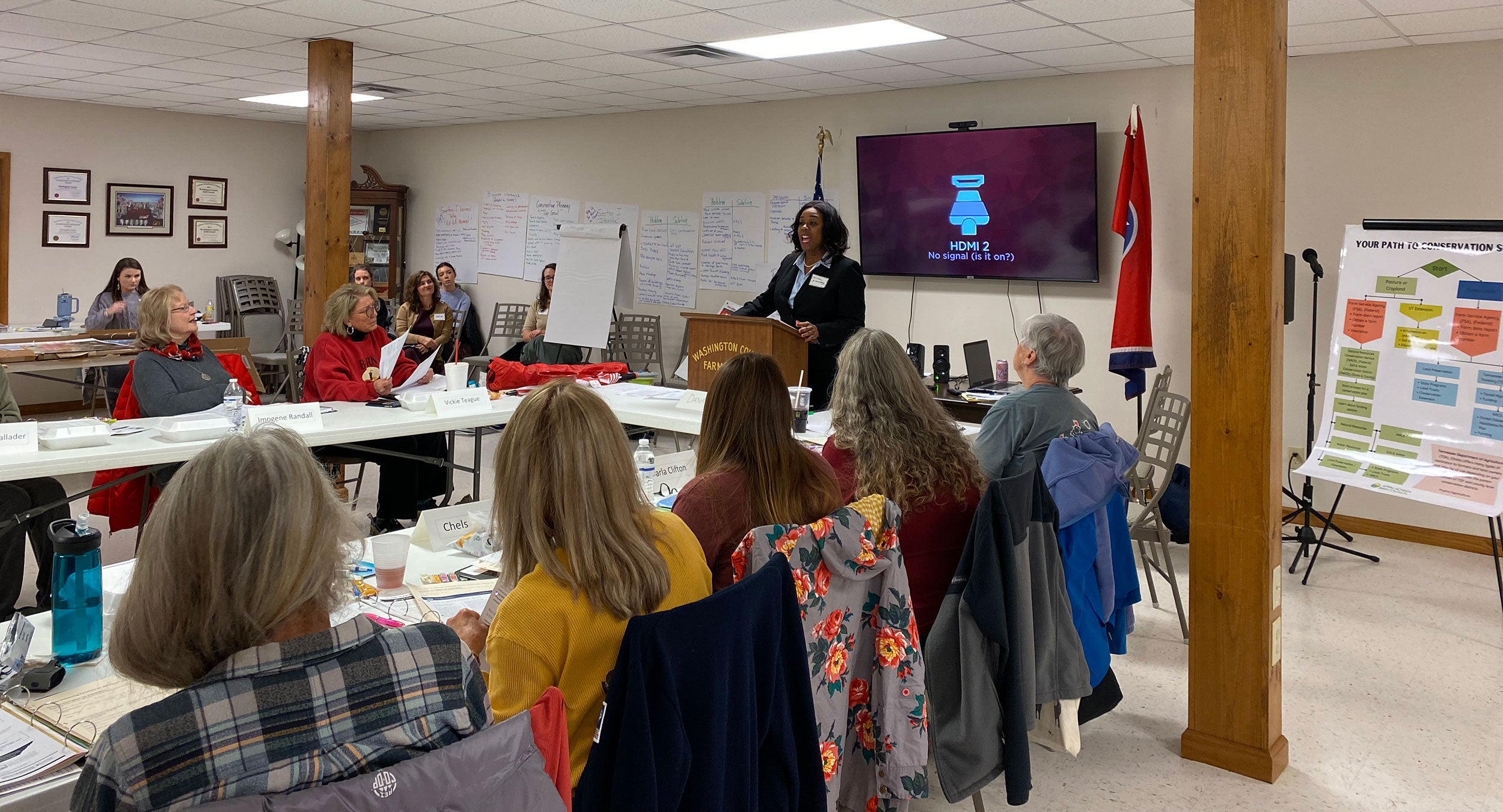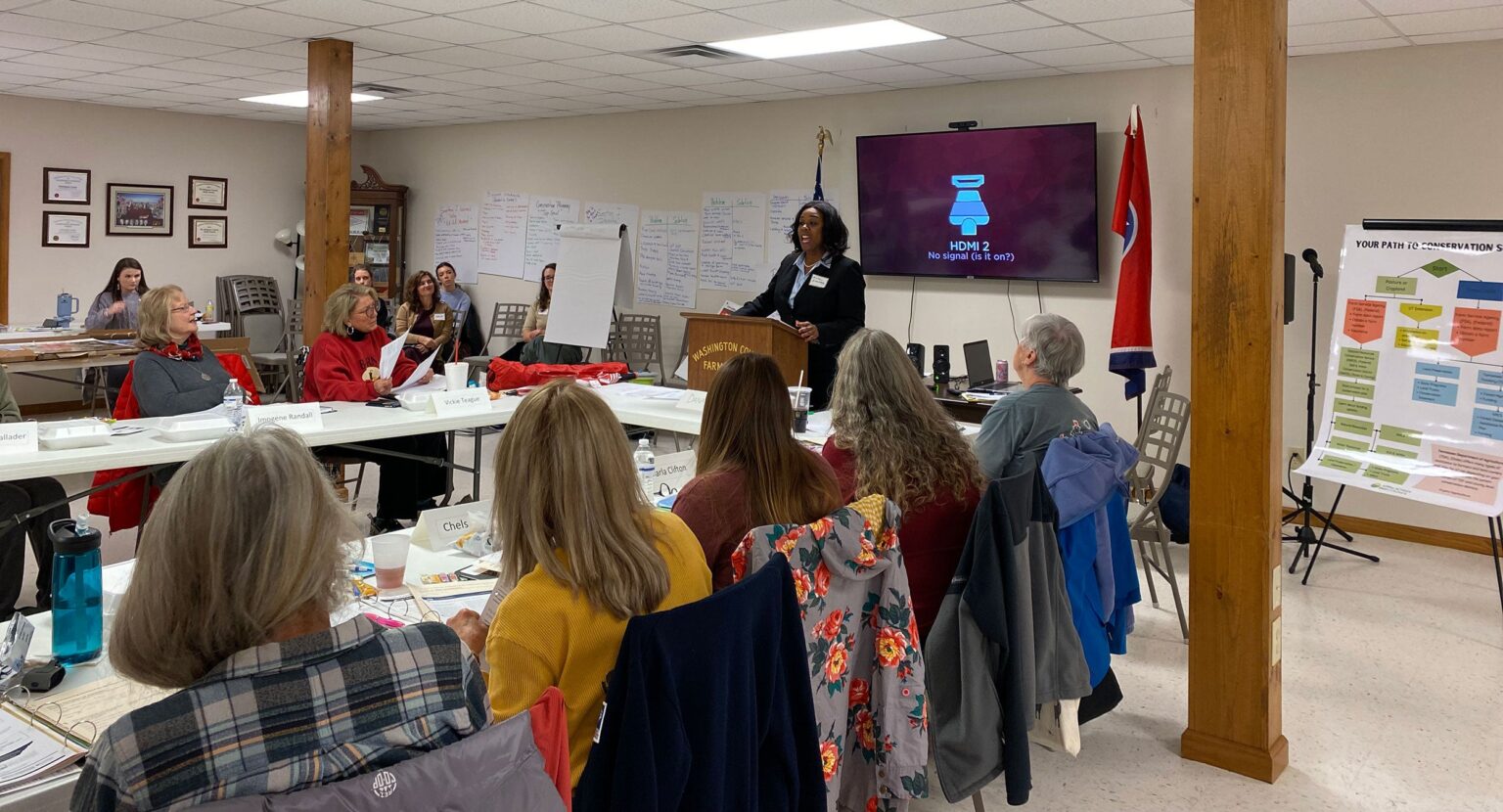Farmland preservation can happen on a large scale as well as smaller, more regional ones. At the local level in Northeast Tennessee, Women Preserving Farmland for the Future (WPFF) offers tools and resources to women who are set to inherit farms, while working to also address farmland loss.
The conservation education program, offered by the Appalachian Resource Conservation and Development Council (ARCDC), involves a three-day workshop where women professionals in conservation speak and provide their expertise.
Dana Ensor is the founder and facilitator for the program, previously working for the USDA’s Natural Resource Conservation Service. She initially developed the curriculum for WPFF in parts of Pennsylvania and Virginia after she was hired by American Farmland Trust to create a program for women landowners. Upon her retirement, she relocated to her family farm in Northeast Tennessee, where she brought the program with her and initiated the workshop in 2022.
A report from American Farmland Trust has said that Tennessee is the nation’s fourth-most threatened state in terms of farmland loss, and women farmers are highly impacted by this possibility. Experts say this issue is prominent in cases where women outlive their spouse yet may not be fully equipped with the resources available to allow them to foster the land.
“If families don’t create new transition plans together, oftentimes it’s women that are left making these decisions” said Rachel Slaughter, farmland conservation director at the ARCDC. More instances than not, women weren’t serving as an operation’s primary producer, she said.

For some it can be intimidating to try to learn in environments where people have different experiences, and for others it can be hard to access the farm assistance education altogether.
“I think historically, women haven’t always been included or as involved in a lot of farm education programs, and so we wanted to create a space that was just for women so that there were all women participants, and all women instructors so that women really feel comfortable asking questions,” said Slaughter.
WPFF helps create the conversation about what is going to happen during the transition of land ownership in order to keep viable farmland in production, as well as being a way to address why Tennessee is one of the leading states experiencing farmland loss.
“Once it’s paved over, or once it’s been developed, it doesn’t come back to farming,” Slaughter explained. “And making sure that we preserve the farming that we do have is going to increase food security. It’s going to increase just by having green open space.”
The ARCDC sees success for the future farmer tied to access to land, an issue in Tennessee that WPFF continues to address.
“Farmland access is one of the largest struggles and barriers to farming for new and beginning farmers, and so it’s our hope that the more farmland that stays in production, the more accessible it’ll be to the next generation who wants to farm,” Slaughter said.
During the three days of the WPFF workshop, women farmers come together to build a community and bring their collective knowledge to use. They share their experiences, allowing all participants to get a peer perspective on how to connect with the resources and education that they need to plan the farm transition they want.
About 15 experts and officials come to talk about the resources each of their organizations offer. This includes an estate planning lawyer who talks about different tools such as trusts and wills. Also, a representative from the Land Trust for Tennessee comes to provide insights to conservation easements.
“We’re providing the tools to start this conversation at home with your families, with all the decision makers at the table, because they are big decisions that should be made with everybody, all the stakeholders at the table in the family who’s deciding for the future of that farm,” said Slaughter.
The workshop has seen positive feedback, from even experienced primary producer women farmers. Slaughter highlighted this by saying, “In the most recent workshop, there was over 200 years of farming experience between the women there, and one woman went on to say, with all of this collective knowledge that we had, we still didn’t know everything that you brought to this workshop.”
The workshop has now been hosted in six counties, with growing demand in Eastern Tennessee counties. Yet as this demand continues to increase, the ARCDC is looking for more funding in hopes to move the program statewide.
Tahja Sims serves as the 2025 American Farmland Trust Agriculture Communications Intern at AGDAILY, with a focus on helping to amplify diversity and minority voices in agriculture. Tahja is currently an agricultural economics major and senior at Texas A&M University. She has served as an intern with the U.S. House of Representatives and is a member of Minorities in Agriculture, Natural Resources and Related Sciences (MANRRS) organization.


